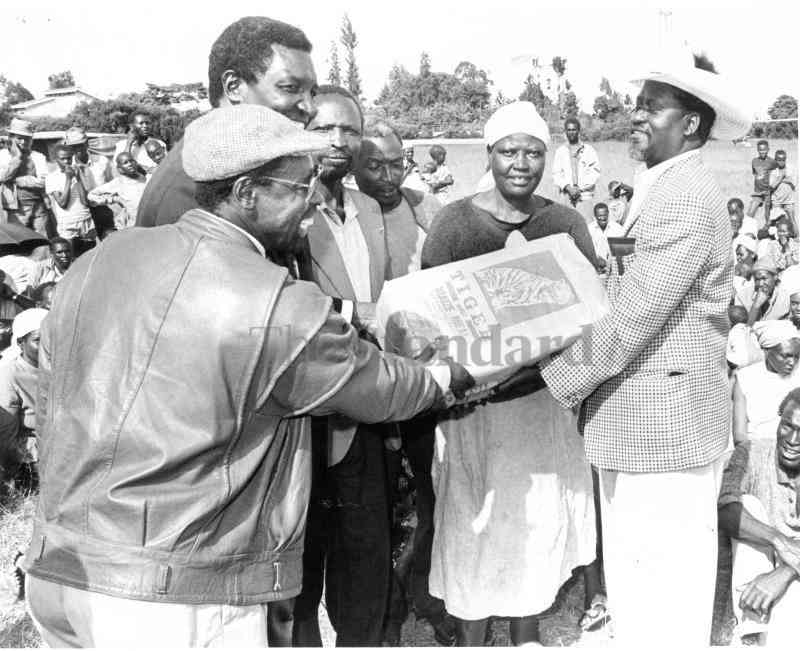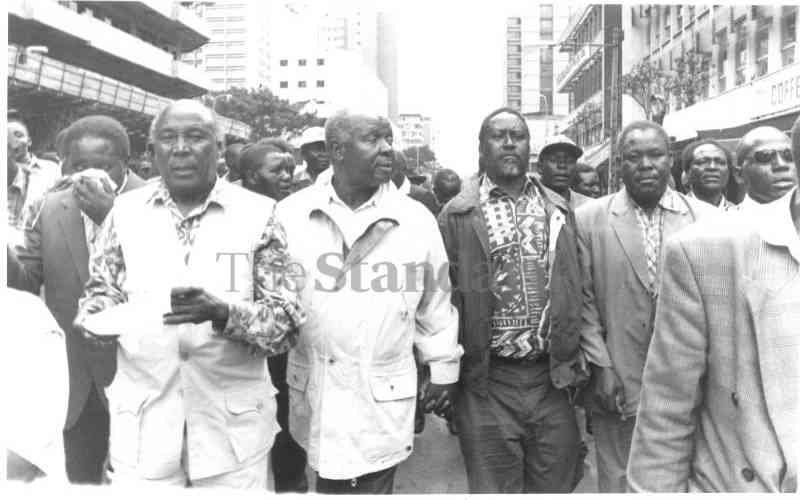Azimio La Umoja presidential candidate Raila Odinga addresses his supporters at Gusii stadium on August 2, 2022. [Sammy Omingo, Standard]
Born in 1945
1970: Raila Odinga returns to Kenya after studying abroad
1971: Established the Standard Processing Equipment Construction and Erection Limited (later renamed East African Spectre)
1982: Charged with treason and detained for 6 years
1988: Arrested for involvement in multiparty campaigns
1990: Rearrested after his release on 12 June 1989
1991: Upon his release, he fled to Norway over assassination fears
1992: Back from exile, Joined Forum for the Restoration of Democracy (FORD)
-Vied for the first time as MP and won Langata parliamentary seat
-Quit FORD-K & formed National Democratic Party (NDP)

Langata MP Raila Odinga and Mathare MP Ochieng Mbeo donate maize flour to crash victims at Kirigiti Stadium in December 1994. [File, Standard]
1997: Contested for the presidency and lost
-Led merger between NDP and KANU

Raila Odinga, Kenneth Matiba and other opposition leaders during law reform demos in Nairobi in May 1997. [File, Standard]
2001-2002: Served as Minister for Energy
2002: Forms LDP, teams up with National Alliance Party of Kenya (NAK) to form NARC that defeated Uhuru Kenyatta in 2002 poll.
2005: Raila led the ‘Orange’ camp in opposing the proposed constitution
2007: Vied for the presidency for the second time under ODM and was runners up
2008: Became Kenya’s second Prime Minister
2013: Contested for the presidency for the third time on a CORD ticket, lost to Uhuru Kenyatta
2017: Vied for the presidency for the fourth time on a NASA ticket and lost to Uhuru Kenyatta
-Odinga successfully challenged Uhuru’s victory in court, the win was declared null and void forcing a repeat election, Odinga withdrew from the election re-run
-Raila went ahead to swear himself in as the “people’s president”
2018: Raila-Uhuru decided to reconcile and shook hands before millions of Kenyans
2022: Vied for the presidency for the fifth time on Azimio la Umoja – One Kenya Alliance ticket Source: The Standard






